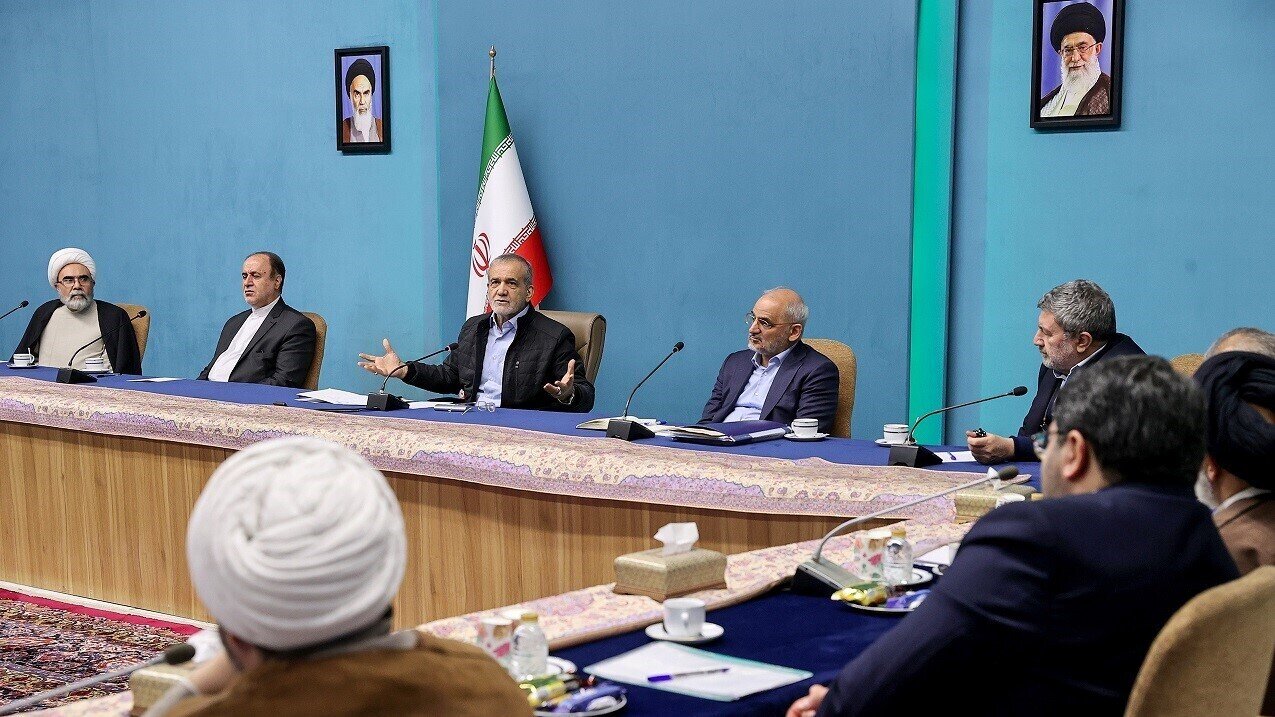Resistance against oppression key legacy of Islamic Revolution Pezeshkian
Resistance against oppression key legacy of Islamic Revolution: Pezeshkian
TEHRAN – Iran’s president Masoud Pezeshkian has stressed the importance of resistance against oppression as one key legacy of the Islami Revolution.

In a meeting with the head and members of the Islamic Development Coordination Council, alongside the Headquarters for the 46th Anniversary of the Victory of the Islamic Revolution on Monday, Pezeshkian highlighted the sacrifices made since the Islamic Revolution’s triumph, stating, “We have suffered many martyrs and victims of terrorism. Our enemies have repeatedly targeted our leaders, elites, and prominent figures in attempts to undermine this revolution.”
The president also extended his condolences for the martyrdom of Ali Razini and Mohammad Moqiseh, two judiciary judges, describing their deaths as further evidence of the Islamic Republic’s enduring battle against terrorism.
“These sacrifices show that Iran and this revolution have consistently been victims of terrorism. The atrocities committed by the Zionist regime and its backers in Gaza—targeting women and children—are clear examples of terrorism. Yet, ironically, they accuse us of supporting terrorism,” Pezeshkian remarked.
The president also paid tribute to the people of Gaza, who recently achieved a significant victory against the Zionist regime. “We congratulate the resilient people of Gaza and Palestine on their triumph. They stood with dignity and courage against oppression and achieved a remarkable accomplishment. Their resilience serves as a lesson to other nations on how to confront terrorism,” he stated.
The president underscored the need for unity and inclusivity within Iran, urging officials to avoid creating divisions. “Every citizen must feel a sense of ownership over their homeland. We must not separate people based on baseless pretexts. Piety should be our primary criterion, and those with greater piety should be considered more honorable,” he said.
The president also called for a merit-based approach to governance, highlighting efforts to include local and Sunni individuals in key positions in provinces like Sistan and Baluchestan and Kurdistan.
Mohammad-Hossein Mousapour, head of the Islamic Development Coordination Council, opened the session by outlining the council’s plans for the 46th anniversary of the Islamic Revolution. He highlighted several initiatives aimed at celebrating the occasion, including fostering innovation, engaging youth in analytical discussions, promoting the revolution’s achievements, and organizing unity-focused events during the Fajr Decade celebrations.
source: tehrantimes.com